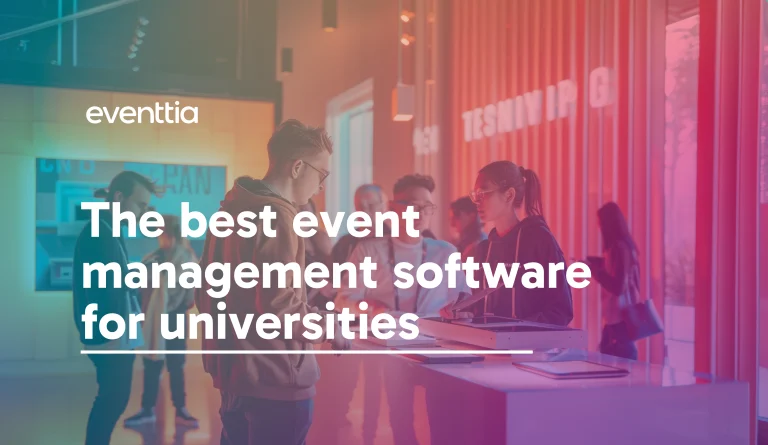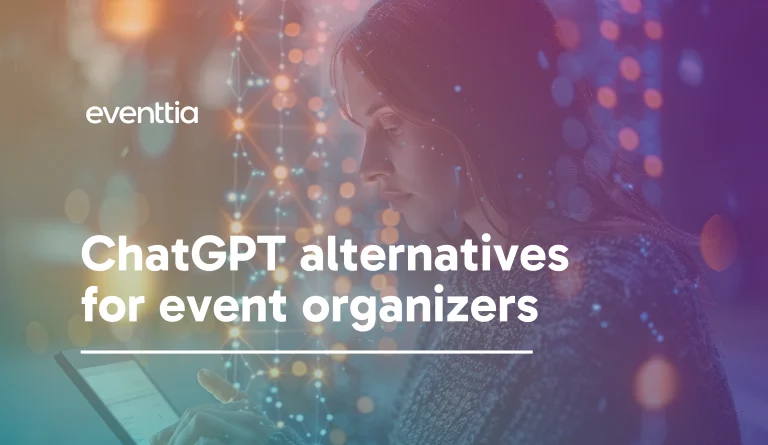Networking events are more about the quality of your guests than about flawless planning and logistics.
By attracting high-quality attendees to your events, you’re also increasing your events’ standards by offering greater chances for relevant connections. If, on the contrary, you don’t care enough about the quality of your guests, you run the risk of sabotaging their interaction experiences.
“Why? After all, people who are attending my networking events will chase good results, meaning they’ll try to give their best,” you might be thinking.
True, but there’s a little twist: When planning networking events, you’ll discover three types of attendees you must avoid: the one-night standers, the “I don’t know what I’m doing here” people, and the big talkers.
Three types of networking events attendees you should avoid
One-night standers, according to entrepreneur Derek Coburn, are people who have their own personal agenda or reasons to attend networking events or dynamics.
As he indicates, “Networking events are like nightclubs, because most people there are just looking for a professional one-night stand.”
Coburn highlights that one night-standers “are the people who are just starting out or running a flailing, mediocre business and looking for anyone who might be able to help (or save) them in any way. They are looking for quick fixes, short-term remedies, stop-gap measures. They aren’t worried (yet) about cultivating long-term relationships, so fittingly they have the most time to spare on networking.”
“I don’t know what I’m doing here” attendees, on the other hand, are those who feel the most reluctant to interact or try to build quality relationships with others at networking events.
They are usually only at your event because their boss or manager forced them to attend. They have no interest whatsoever in meeting new people, and as a result will likely be careless or disinterested in their interactions with others.
Finally, there are the big talkers, or the “me-me-me” type, and they can be a real problem at networking events. They don’t stop talking and typically brag about themselves.
They will dominate the interaction time with a big smile, and ramble on about themselves, without even asking the name of their prey (i.e., the vulnerable attendees).
Less-qualified guests may turn your networking event into a big failure.
That’s why you must design a system that will avoid these less-than-desirable guests and attract high-quality attendees, aka “unicorns.”
But first, let’s see who these highly qualified attendees are and how their presence will guarantee the success of your networking dynamic.
What makes these “unicorns” truly the best?
The high-quality participants, or the unicorns, are those guests you must try find and attract. These are the people who search for meaningful interactions, have lots of things to offer, and have the highest motivation to generate professional ties with others.
Here are some of their characteristics that will jump-start not only the quality of your event, but also the number of truly meaningful connections.
Characteristic #1. They are highly responsible and professional
You may discover that high-quality professionals are overachievers. They focus on increasing their expertise, while learning how they can improve their skills and knowledge.
This makes them eager to find like-minded people with whom they can connect, learn from, or even initiate joint projects.
Characteristic #2. They seek meaningful interactions
The unicorns aren’t just social butterflies. They are ready to have deep and productive conversations. These people seek relevant connections based on the mutual exchange of value.
Characteristic #3. They prepare for the networking event
Qualified attendees will usually set very clear goals before attending networking events. They will know not only what they are searching for at your event, but also what they can offer in return. This feature makes them perfect attendees.
They will prepare for each networking event knowing exactly what their priorities are, which helps ensure that no one will be there to simply find a quick fix and collect a branded swag bag on the way out.
Characteristic #4. They will continue the communication after the event
One of the most annoying things for those who attend networking meetings is to discover that the interactions (although positive and productive) and connections they had with someone will disappear because the other person has no interest in following up.
Highly qualified attendees are usually responsible and willing to continue communicating with their interested prospects after the event.
Characteristic #5. They don’t mind different networking formats
Whether it’s a coffee break, casual social interaction, speed meeting, or B2B matchmaking, high-quality attendees can easily switch between different engagement dynamics. Since their main goal is to build meaningful connections, they will focus more on productive conversations than on the format.
Now that we’ve listed these features, what can you actually do to attract high-quality attendees?
Here’s a list of steps you can follow while planning the networking event.
How to attract high-quality attendees
Obviously, you can’t ensure a 100% qualified presence at your events. However, the mere fact that you’re considering the need of attracting the best attendees will improve the relevance of the guests’ interaction.
To achieve a higher degree of networking quality, check out the following recommendations:
Step #1. Design a quality management system
Before planning the event, ask yourself what groups of attendees you want to connect. Subsequently, you can use a matchmaking system that will automatically connect the offer and demand.
Before this happens, the attendees will have to register into the system and specify what they are looking for and what they can offer.
Apart from that, you can introduce a series of mandatory questions that will determine the attendees’ qualification level. You can attract high-quality attendees by accepting those who match your pre-established requirements. Also, you can veto those who don’t meet the criteria.
Step #2. Ask your attendees about their networking experiences
As we previously indicated, it’s important for the networking event guests to meet certain qualifications. However, you aren’t just interested in their professional profiles, but also in their soft skills.
That’s why, in the networking form attendees must complete beforehand, you can ask them about their previous networking experiences and how many meaningful contacts they made at those events.
You could also ask other questions, such as “What do you enjoy most when attending networking events?” or “What did you learn during the last networking event you’ve attended?” or “What are your networking goals?”
This can give you some insight into your potential attendees’ psychological profile.
Step #3. Set evaluation criteria and thoroughly study each attendee’s profile
Set aside some time for you and your team to review all the received networking registration requests. Also, agree upon a series of evaluation criteria that will simplify the decision-making process of accepting or vetoing applicants.
For example, you may veto someone who has no goals for the networking session or provided vague answers.
Step #4. Handpick your attendees
A good way to ensure you have high-quality guests at your event is to create a powerful database of truly relevant professionals and use that list to select your event attendees.
In this case, note that whether we talk about hosted buyers or professionals, your networking event must be appealing enough for these people.
Step #5. Plan a controlled networking environment
The moment you decide to go for a B2B matchmaking dynamic, the entire networking setup changes. People can’t just mingle with each other, have a drink, and interact.
There’s a strict set of actions one needs to take (go from meeting to meeting) and a series of strict requirements she or he needs to respect.
Serious professionals will love this format, since they are guided through the entire experience, and they can decide with whom they want to meet.
Final thoughts
There’s no point in planning a networking event if you don’t care enough to attract high-quality attendees.
You’ll never be able to completely avoid guests who aren’t willing to give their best, but at least you’ll gather a nice pool of people who are seeking meaningful interactions and potential business relationships.
Discover how Eventtia helps world-leading brands digitize and scale their events
Learn moreShare



